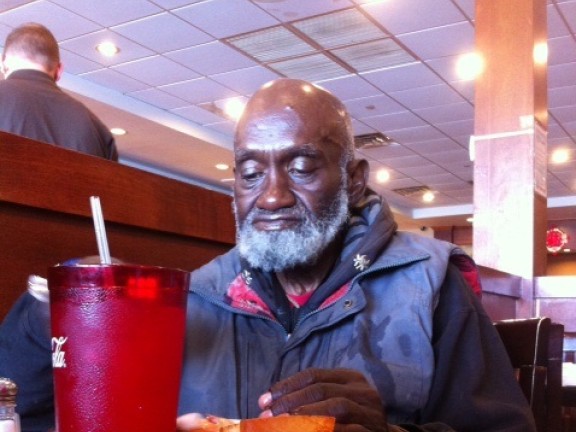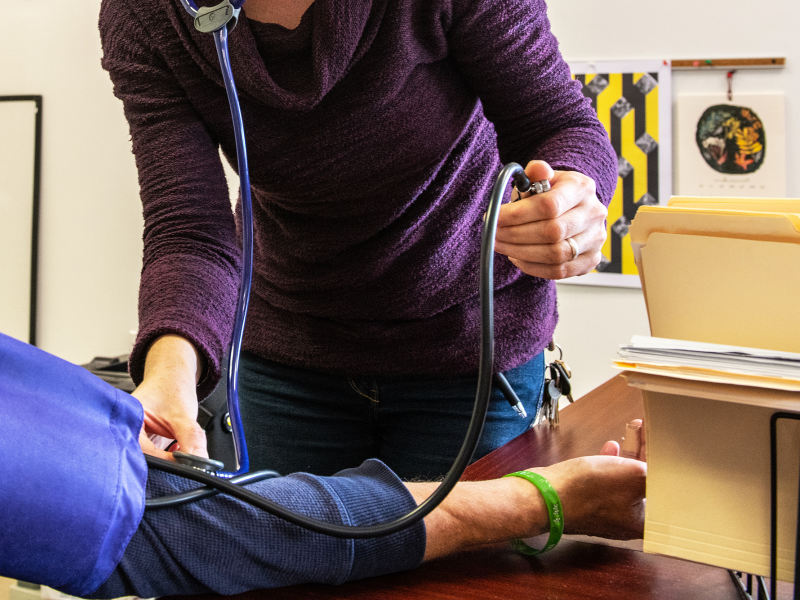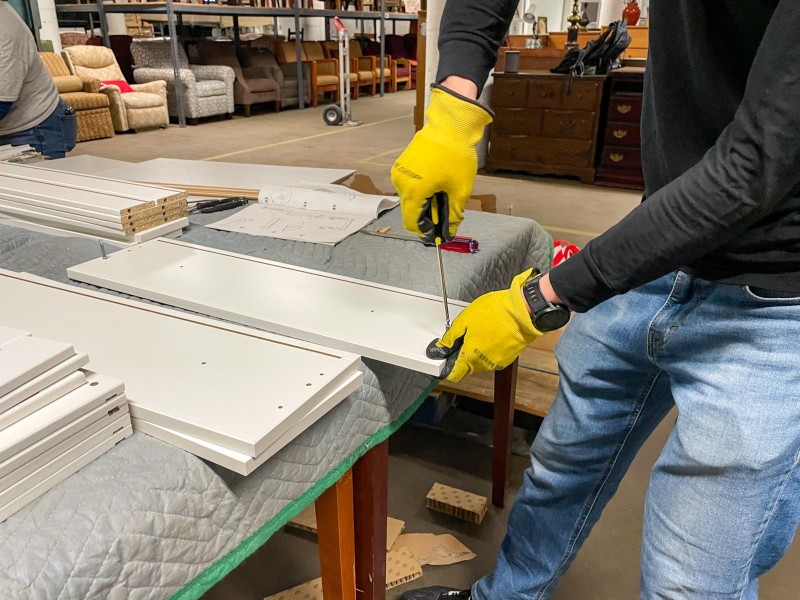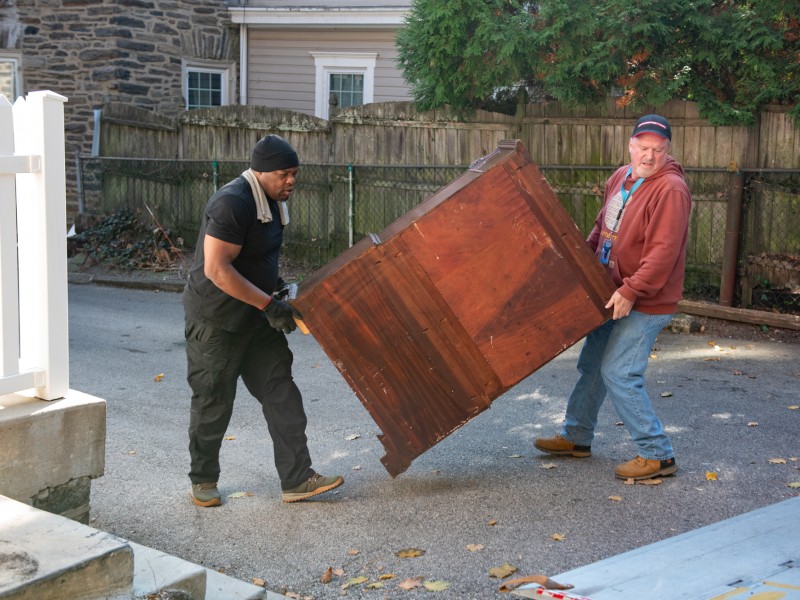The Power of Lunch

As one of the Community Integration Coordinators I help come up with new ways our participants can connect with people, groups, and services around the city. Some of these start with smaller groups to normalize or remove some of the mystery surrounding things that you or I take for granted. We play board games with participants in hopes that they’ll play with others on their own. We take them bowling and encourage them to budget their money so they can go another time without us. We help them have a cookout so, the next time they want to have one, they know how to plan and make it happen. The people we serve have been through a lot. Some of their life experiences have led them to places we can never fully comprehend. These places are intertwined with trauma and skewed perspectives of self and others. When you’re surviving on the streets you have to do things you later regret and those choices leave lasting impressions. Some of our people carry heavy emotional baggage from decades of these choices and we’re helping them to slowly chip away through creative and dynamic ways to lighten their load and rediscover joy in life.
Several months ago I came up with an idea to connect with some of the more vibrant participants across the teams and take them to lunch. Some of the most extreme introverts and extroverts from across the agency were contacted and asked if they would like to get lunch once a month for six months. A simple idea with huge potential; one on one interactions in the community to help people know they are not alone. It was explained that this outing was a chance to connect with Pathways outside of uncomfortable medical appointments, overwhelming DPW lines, or in the murky waters of a payee and receiver of benefits. These instances make it difficult to develop positive relationships with people who are already having a difficult time due to past experiences. One participant’s response was, “Yes. Yes! See, this is it. I knew you knew. This is what I’ve needed. I knew you’d know and you did. Let’s go to lunch!” He then went to his team’s room and called his mother to tell her about the new club he had been invited to join. Another participant said, “Yeah. I like it. You get lunch with me and you’ll have a blast. Maybe we can go to the zoo. First we’ll go to lunch and maybe later the zoo. You’ll never forget lunch with me!”
A week or two later I went to lunch with the guy talking about the zoo. A very loud and abrasive man with a long history of homelessness – chances are you’ve seen him in Center City and he’s approached you for change. He’s smart, engaging, present, and able to cut to your core with corrosive venom. There are times when he can be at the office and as pleasant as an endearing granddad then shift, without warning, to yelling racist and sexist slurs, profane insults, and threatening a wide range of physical acts; many of his interactions at the office end with him being escorted out of the building with various consequences or interventions to prevent future outbursts. On this particular day I started our interaction with a question, “Why do you think we’re getting lunch today?” He smiled in sly reply, “For positive social interaction. To be in the community together. So we can talk and visit with each other like everybody else... Sometimes I’m hard to get on with. Being together now means we’ll be better together later.” He, at least, knew why we were together. The true test was whether we’d be able to go to a restaurant on City Ave and not have an altercation with other patrons or be asked to leave if he had an outburst. Honestly, I was surprised when the lunch went well. We talked about his days “down south” and the work he had done on some farms in North Carolina. I took him home and he got out of the car and went to the door of his apartment without a word. I rolled down the window and called to him, “I had a great time today! Hope to do it again real soon!” He nodded and waved awkwardly with a visible grunt. It struck me as odd. Our lunch had started well, we had a decent conversation, we talked on the way home from the restaurant, and then there was this abrupt end.
The next several months we continued to get lunch. The appointments were sporadic due to unhealthy lifestyle choices or violent outbursts – things I knew were potential hurdles when set up the interactions. Regardless, we’ve pushed forward. At the beginning of the month the participant is given a date for the lunch to occur and he either makes it or he doesn’t and we reschedule again the following month. Over the past six months we’ve gotten together four times and following each interaction I’ve noted how difficult it is to end. Thinking and reflecting on our outings it has occurred to me that this participant often doesn’t know how to end an interaction. His sudden outbursts don’t seem so random when viewing in this context. For example, things at the office could be fine for several hours, but when the participant was ready to leave or office hours were about to close he would have an outburst. This isn’t a perfect rule for his interactions, but it seemed to be applicable to many. For a person who has lived a life like he has it makes sense. His social interactions end with being removed by authorities, kicked out by family, blow ups with acquaintances, or altercations on the streets with strangers. What I began to learn is that this participant doesn’t know how to say, “Goodbye.” Just how many other people do we serve who have been socialized in such chaotic and disjointed ways?
Last week, we got lunch again. We had made a plan, but the participant did not show. I went by a place he tends to sit and panhandle and found him. I came up beside him and said, “Hey, old man!” Quickly he turned saying, “Who you calling – oh, hey Rob!” I asked why he didn’t make our appointment and he said he forgot. He asked if we could go then and I said we could. We headed to a restaurant where he confused wait staff, talked about how Black and White Americans need to be more supportive of each other, and how God brings people together. This day in particular it felt like I was just along for the ride, but I made it a point to interject and interact where I could. On the ride home we talked about several topics that were peppered with misogyny and racial slurs. I could feel tension in the air as the interaction was coming to a close. As we approached his apartment the conversation continued until we pulled up in front. Then he paused. As he extended his hand he said, “Okay, Rob. Thank you for lunch. Tell everyone at the office I’ll be there tomorrow.” And that was it. It was over. Leading up to the end it had been a hodgepodge of sexist and racist comments, but it ended with a handshake. It ended on a positive note. There was no blow up and there was no awkward grunt and wave. It was a regular end to two guys getting lunch together and a plan to see each other again later. Not only had it ended well, but there was a plan for something to happen later. These little steps are what we do. It takes time and patience, but, hopefully, we can make steps towards the positive. When someone has had a life consisting of crippling negative experiences it takes time to change; to see the world and one’s self in a different light. I say this knowing that our next interaction might not be so positive. But for that day and at that time there was a brief glimpse and it was good.
Submitted by Rob Wetherington, MA
Community Integration Coordinator


